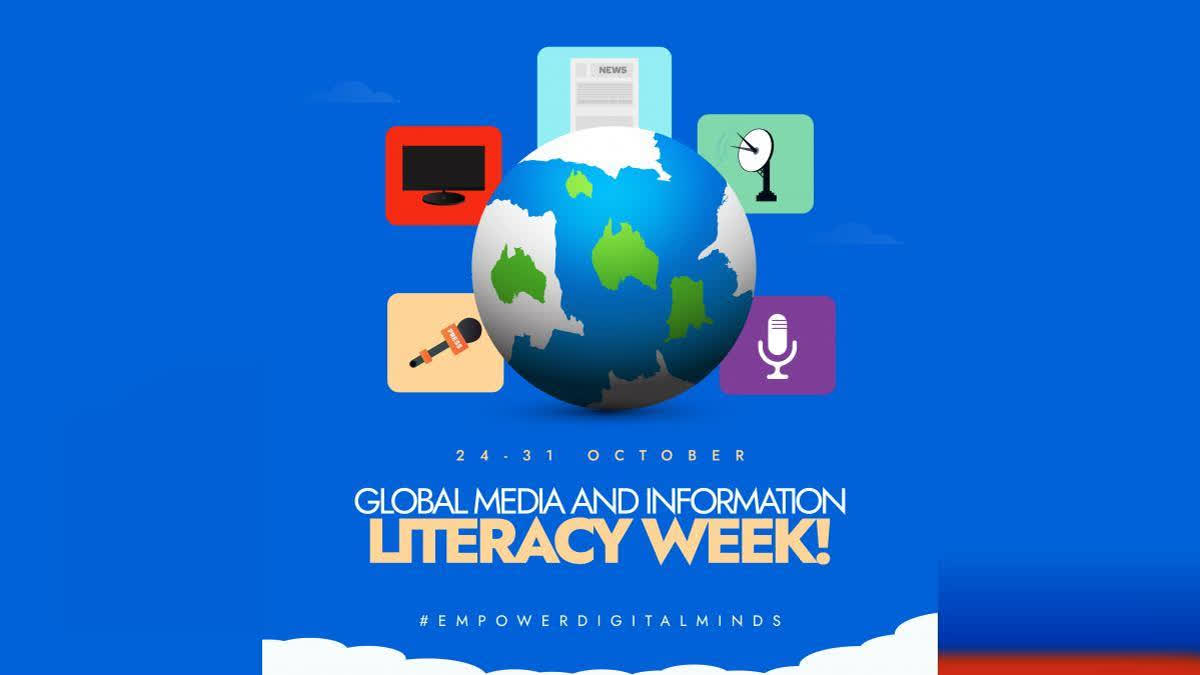Hyderabad: Global Media and Information Literacy (MIL) Week 2024 will be celebrated worldwide from October 24-31, culminating in a global conference hosted by UNESCO in Amman, Jordan, on October 30-31.
Since its inception in 2011, Global MIL Week has been a platform for stakeholders globally to share ideas and promote Media and Information Literacy for all. It is an annual event organised by UNESCO to raise awareness of the importance of media and information literacy (MIL) and to celebrate the progress made towards achieving MIL for all.
What is Media and Information Literacy
Around the world, people are experiencing a significant surge in access to information and communication. While some may lack access to information, others are inundated with printed materials, broadcasts, and digital content. Media and Information Literacy (MIL) addresses fundamental questions that individuals often contemplate.
How can we access, search, critically evaluate, use, and contribute content wisely, whether online or offline? What are our rights in both digital and non-digital realms? What ethical concerns are associated with information access and usage? How can we harness media, information, and communication technologies (ICTs) to foster equality, intercultural and interreligious dialogue, peace, freedom of expression, and information access
Background
In 2021, the UN General Assembly decided to commemorate MIL week, citing the need for the dissemination of factual, timely, targeted, clear, accessible, multilingual and science-based information. The resolution recognises that the substantial digital divide and data inequalities that exist among different countries and within them, can be addressed in part by improving people's competencies to seek, receive and impart information in the digital realm.
Each individual needs to be equipped with media and information literacy competencies to understand the stakes and to contribute to and benefit from information and communication opportunities.
MIL, commemorated annually, is a major occasion for stakeholders to review and celebrate the progress achieved towards 'Media and Information Literacy for All'.
Significance of Global MIL Week
Because it increases awareness of the value of media and information literacy in the current digital world, MIL Week is an important occasion. MIL is necessary for people to be able to responsibly create and share their content, think critically about the information they come across, and engage in public life.
MIL is more crucial than ever in the current environment, where misinformation and disinformation are frequently disseminated online. MIL can assist individuals in acquiring the abilities necessary to recognise and steer clear of false information, validate the information they come across, and decide what to believe and share.
What is Media and Information Literacy?
Our brains depend on information to work optimally. The quality of information we engage with largely determines our perceptions, beliefs and attitudes. It could be information from other persons, the media, libraries, archives, museums, publishers, or other information providers including those on the Internet.
People across the world are witnessing a dramatic increase in access to information and communication. While some people are starved for information, others are flooded with print, broadcast and digital content. MIL provides answers to the questions that we all ask ourselves at some point. How can we access, search, critically assess, use and contribute content wisely, both online and offline? What are our rights online and offline? What are the ethical issues surrounding the access and use of information? How can we engage with media and information and communications technologies (ICTs) to promote equality, intercultural and interreligious dialogue, peace, freedom of expression and access to information
Through capacity-building resources, such as curricula development, policy guidelines and articulation, and assessment framework, UNESCO supports the development of MIL competencies among people.
UNESCO’s Role in Promoting Media and Information Literacy Competencies
UNESCO plays a crucial role in advancing MIL. It offers capacity-building resources such as curricula development, policy guidelines, articulation, and assessment frameworks. These resources are designed to foster MIL competencies among individuals, promoting a society that is well-informed, critically aware, and equipped to engage with the information and communication opportunities of the digital age.



